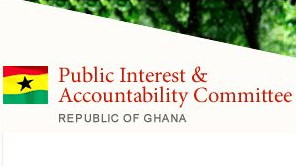PIAC got no office, no letterheads, no money from government
 The Public Interest and Accountability Committee (PIAC) has no office, no letterheads and no support staff since it was inaugurated in September 2011. The committee worked to prepare its first report by perching in the offices of international NGOs.
The Public Interest and Accountability Committee (PIAC) has no office, no letterheads and no support staff since it was inaugurated in September 2011. The committee worked to prepare its first report by perching in the offices of international NGOs.
A member of the committee, Mr. Yaw Owusu-Addo told ghanabusinessnews.com, that the committee operates in hotels and from the offices of some NGOs including the Revenue Watch Institute and the giz, a German NGO working in Ghana. These organisations, he says also provided funding for the PIAC’s operations over the period to prepare its first report which was launched Thursday May 17, 2012.
“Even though, we have not received any funding from government for our work, and we have no secretary or a car, we have developed a website and have worked to produce this report,” he said.
The establishment of the committee is a requirement of the Petroleum Revenue Management Act. It has the responsibility to monitor and evaluate compliance with the Act by government and other relevant institutions in the management and use of petroleum revenues and investments.
He said the chairman of the committee, Major Daniel Sowa Ablorh-Quarcoo, announced during the launch of the report that government has eventually provided some money for the committee’s work, but he did not know how much.
Most Ghanaians are asking questions after the committee released its first report on how Ghana’s oil revenue has been managed by the government.
There are also questions being raised over projected revenues to be earned from oil and the actual in 2011. The government estimated over GH¢1.2b but the actual revenue earned was a little over GH¢666m.
In its findings, the committee said “there were wide disparities in petroleum revenue for 2011 between the forecast and the outturn. All the revenue streams fell short of their forecast with the exception of carried and participating interests. Corporate taxes in particular were not collected due to capital cost recovery provided for in the Petroleum Income Tax Law 1987 (PNDC Law 188).”
It also found that the forecasting methodology as specified in the Act 815 was strictly not being complied with, reportedly due to lack of historical price data on Jubilee crude oil.
“In forecasting corporate taxes, the Ministry of Finance and Economic Planning also failed to consider the advice of the Ghana Revenue Authority on the tax-paying position of the oil companies which then raised problems of institutional coordination. Further, the Ministry‘s reliance on negotiating corporate taxes with oil companies based on moral suasion is not in tune with established international practice,” it added.
By Emmanuel K. Dogbevi
